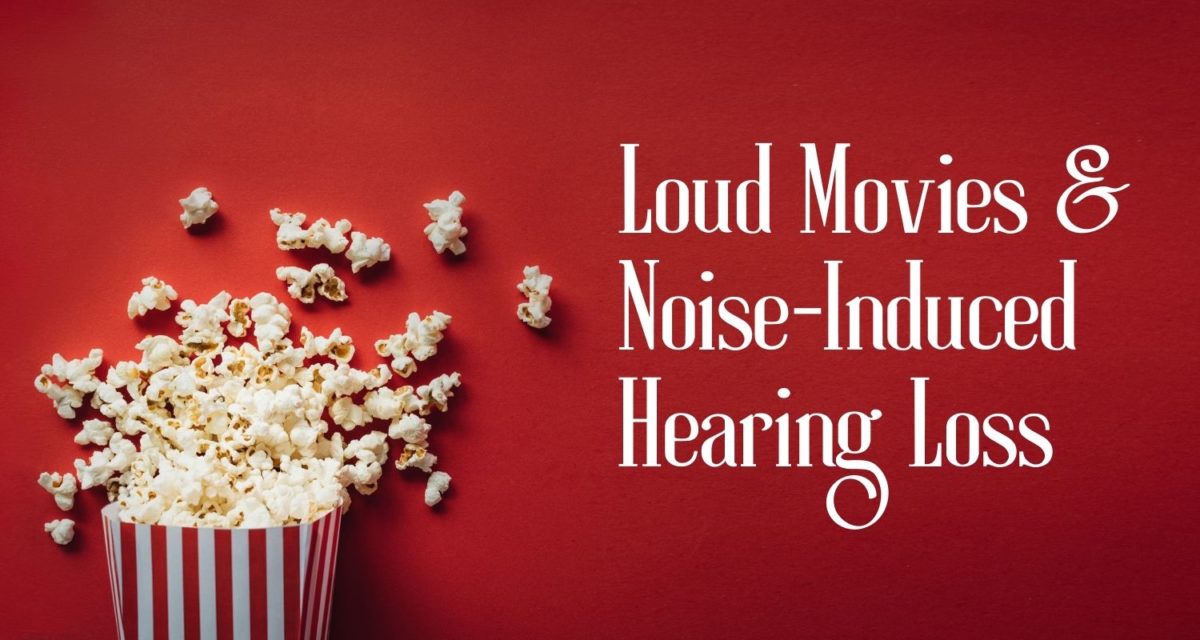Over the past few months, many people have started returning to movie theaters and catching up with the latest releases outside the confinement of their homes. Going to the movies is also a beloved holiday tradition, making this season one of the busiest for new releases and theater attendance.
As great as going to the theater can be, it often comes with an unrecognized health risk: hearing damage. In the quest for an immersive viewing experience, today’s theaters boast cutting-edge surround sound which too often delivers great sound at dangerous volumes.
What Is Too Loud?
When we say “dangerous volume” what exactly do we mean? Human hearing is built to detect surprisingly subtle sounds, like whispered speech or dried leaves rustling. It relies on delicate sensory cells called “hair cells” to detect sound. These tiny sensory apparati vibrate at the slightest sound, but loud sounds can overwhelm or even break them. Hair cells cannot repair themselves if they are stressed beyond their breaking point. Unlike other cells in the body, they do not replace themselves. Instead, damaged hair cells fall out of commission.
The fewer working hair cells we have available to us, the less accurate our hearing becomes. When too many hair cells are permanently damaged, hearing becomes difficult and we experience hearing loss. Understanding how noise can damage your hearing is important to recognize when a sound is dangerously loud.
Sound volume is measured in a unit called decibels (dB). Human hearing can withstand sounds up to 75 dB, about the volume of a vacuum cleaner, without sustaining any damage. Above 75 dB, your hearing can only endure listening to the sustained volume for a limited amount of time. The louder the volume, the quicker it can damage your hearing. For instance, a factory floor operating at 85 dB will damage a worker’s hearing after 8 hours of unprotected exposure but a rock concert amplified to 105 dB will cause permanent hearing damage after only 8 minutes. Sounds above 120 dB are unsafe for any amount of time and cause instant damage to unprotected hearing.
Back to the Movies
Many of us are acclimated to a loud environment – a busy world that seems to get louder every day. It can prevent us from recognizing when sounds have crossed the threshold into harmfulness to our hearing. Movie theater sound is one example. In a recent investigation, reporters tested the sound levels theaters are exposing their audience too.
Children’s hearing can be more vulnerable to damage than hearing in adults and hearing issues early in life can cause setbacks in communication and educational development. Even so, children’s movies are frequently presented at volumes that top 85 dB and even peak close to 100 dB. Early exposure to loud noise can damage young hearing and normalize bad listening habits.
Movies for adults tend to be even louder. Non-action films can still have a sound level that hovers in the 90 dB range and Hollywood blockbusters tend to blast their audience with sound over 100 dB. Needless to say, these sound levels hold the potential for hearing damage and a thrilling cinema experience certainly isn’t worth compromising your hearing health.
Don’t Forget Your Home Theater
Over the past months, many Americans significantly upgraded their home theater set up. With innovative sound systems and large flat screen televisions, home theaters can now deliver a cinema-like experience without having to leave the front door. The quest to replicate the theater experience at home shouldn’t extend to amping up the volume. A good rule for volume levels at home is to always keep them below the top third of the volume range.
Protecting Your Hearing
How do you know when a sound in your environment is too loud to be safe? One easy way is to use an app to turn your smartphone into a decibel meter. By being able to easily assess the volume of your surroundings you can know instantly whether your hearing needs protection from dangerous noise.
A simple pair of reusable earplugs are convenient and useful protective gear to always have on hand. Earplugs can be put on quickly and offer levels of protection that can save you from permanent hearing damage. You’ll also want to let your local theater know when movies are uncomfortably or dangerously loud, which pushes for recognition of these health safety issues and hopefully leads to change.

